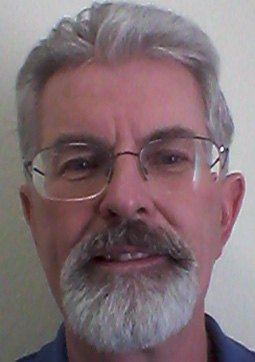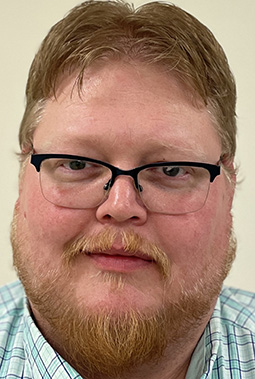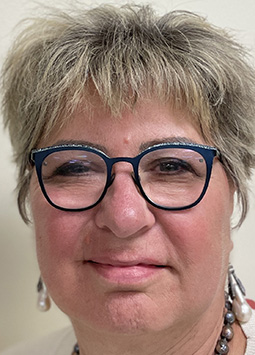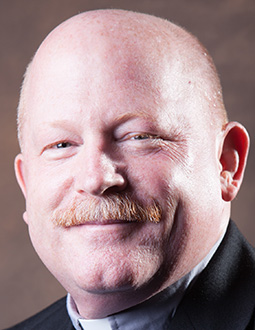Our Catholic faith calls us to have special concern for the poor and vulnerable, which includes people who have a mental illness, Father Mike Lydon told those gathered Nov. 14 for a panel discussion on mental health in the Southern Vicariate.
Almost every seat in the parish hall of St. Joseph Parish in Farmington was filled for “Peace Be With You,” an evening of prayer, information and discussion on the Church’s response to the mental health crisis. Southern Vicariate episcopal vicar Father Lydon, social outreach coordinator Marie Kenyon and Catholic Charities navigator Debbie Koeller organized the event after hearing from pastors and others that mental health is a top concern in their area.
“Jesus’ ministry of healing consumes about 40% of the Gospels. He healed all kinds of people,” Father Lydon said after opening with a prayer. “…We try to accompany (people with mental illness) in their journey to health, despite whatever obstacles they might face, or that we might face as well. They’re part of the poor and vulnerable because oftentimes, they feel cut off. So we are in the tradition of carrying out Jesus’ ministry to help those who are in need of healing.”
Mental health issues are often very personal, as nearly everyone has a family member, friend, neighbor or coworker — or themself — who has some form of mental illness, Father Lydon said. Other times, we might encounter mental illness in someone we meet on the side of the road or see out in the community. Mental health also frequently intersects with homelessness and prison ministry, other top priorities for the Southern Vicariate.
Father Lydon shared that while pastor of Sacred Heart Parish in Troy, he became friends with a man who was recently diagnosed with a mental illness and had been in and out of jail. This man “was an evangelist in jail — he gets his fellow prisoners to pray the Rosary,” Father Lydon said. “He’s a real human being, a loving man. I think so many people who are hurting with mental illness, or in bad relationships, or who have been in and out of prison — just remember they are real human beings. These are real human beings who are worth our love.”
Four panelists talked about their experiences of working in mental health and related fields. They shared resources for mental health and addiction recovery in the Southern Vicariate area, which includes a portion of St. Louis, Ste. Genevieve, Perry, St. Francois and Washington counties.
 BlissJudson Bliss, Saint Louis Counseling therapist: “Mental illness is not just in your head — it affects your whole being,” he said. According to the National Alliance on Mental Illness, one in five U.S. adults experience mental illness each year, as do one in six youth aged 6-17, he said.
BlissJudson Bliss, Saint Louis Counseling therapist: “Mental illness is not just in your head — it affects your whole being,” he said. According to the National Alliance on Mental Illness, one in five U.S. adults experience mental illness each year, as do one in six youth aged 6-17, he said.
Bliss encouraged everyone to consider attending a Mental Health First Aid training, taught by Saint Louis Counseling and others that teaches what you should and shouldn’t do if you encounter someone having a mental health crisis.
 HutslerPhilip Hutsler, marriage and family therapist and director of outpatient services at Queen of Peace Center: Mental illness and substance abuse disorders can go hand-in-hand, he said. Queen of Peace Center, a ministry of Catholic Charities of St. Louis, provides care for women with substance use disorders, their families and at-risk youth.
HutslerPhilip Hutsler, marriage and family therapist and director of outpatient services at Queen of Peace Center: Mental illness and substance abuse disorders can go hand-in-hand, he said. Queen of Peace Center, a ministry of Catholic Charities of St. Louis, provides care for women with substance use disorders, their families and at-risk youth.
What can we do as a Church to help people with mental illness? “Treat people with unconditional positive regard, just as Jesus Christ did. Everybody He approached, He loved them first,” Hutsler said.
It’s a good idea to familiarize yourself with local resources so you are prepared if you encounter someone needing help, he said, adding that the Start Here St. Louis area resource directory at startherestl.org is a good place to begin. There is a national program called Catholic in Recovery for those working to overcome addictions, but there are not any chapters in Missouri yet; perhaps there’s someone in our archdiocese who feels called to start a local chapter, he said.
And in prayer, he suggested seeking the intercession of St. Dymphna, the patron saint of people with mental health disorders, and St. Maximilian Kolbe, the patron of those with substance abuse disorders.
 McCarthyNancy McCarthy, former director of the Missouri Board of Probation and Parole and a non-alcoholic trustee of Alcoholics Anonymous: Substance abuse disorders and mental illnesses are diseases “that do not discriminate,” she said. “It will attack individuals who are rich, individuals in a family where maybe one is chemical dependent and everyone else is doing fine.”
McCarthyNancy McCarthy, former director of the Missouri Board of Probation and Parole and a non-alcoholic trustee of Alcoholics Anonymous: Substance abuse disorders and mental illnesses are diseases “that do not discriminate,” she said. “It will attack individuals who are rich, individuals in a family where maybe one is chemical dependent and everyone else is doing fine.”
While we can do our best to support family or friends who need help for a substance abuse disorder or mental illness, that individual is ultimately the only one who can decide to seek treatment, she said. Support groups like Alcoholics Anonymous can be helpful for both people with addictions and their family members, McCarthy said, noting the similarities between 12-step programs and Ignatian spirituality.
 Dcn. ByingtonDeacon Mark Byington, permanent deacon at St. Joseph Parish in Farmington and former police officer who now teaches criminal justice and world religions at Jefferson College: He’s experienced mental health issues in many forms through hosting retreats for law enforcement officers and first responders, seeing the rise in mental health issues in his college students since the
COVID-19 pandemic and his own experience with post-traumatic stress disorder.
Dcn. ByingtonDeacon Mark Byington, permanent deacon at St. Joseph Parish in Farmington and former police officer who now teaches criminal justice and world religions at Jefferson College: He’s experienced mental health issues in many forms through hosting retreats for law enforcement officers and first responders, seeing the rise in mental health issues in his college students since the
COVID-19 pandemic and his own experience with post-traumatic stress disorder.
Being open about his PTSD has helped him connect with others who are dealing with mental illness, he said.
“It’s picking up your cross…and not trying to paint that image that everything is always peachy and perfect, that our lives are always good,” he said. “We have to be real with it, not hide it, and deal with it.”
It’s one way he fulfills the permanent deacon’s role as a bridge between the clergy and the laity. Sharing his own story “breaks down the barriers” in his classroom and parish.
Responding to the crisis
The Nov. 14 event was just the start of the Southern Vicariate’s work to address mental health, vicariate social outreach coordinator Marie Kenyon told those gathered. “We are here to help you figure out — how are we going to respond to this crisis in our region?” she said. Since the event in Farmington drew largely from Deanery 4, the staff plans to host a similar discussion in Deanery 3 to reach more parishioners and continue conversations about how the Church can support those with mental illness.
Debbie Wilson, a parishioner at St. Rose of Lima in De Soto, attended the event “because I absolutely am convinced that in order for our society to survive right now, we need to help (people with mental illness) to be healthy. And we need to break the cycles of addiction and pain that are causing people so much grief,” she said.
Wilson works as an employment specialist and sees how much mental health can affect someone’s ability to find and keep a job. “If people are healthy and feel good, it empowers them to do great things,” she said. “And if people are in pain — we all know, it’s harder to do what we need to do if we’re in pain.”
She was encouraged to be part of a full room of Catholics who care about mental health issues, she said. And her biggest takeaway: “How much I still have to learn.”
For a list of mental health resources compiled by the Southern Vicariate, visit stlreview.com/47KSD62